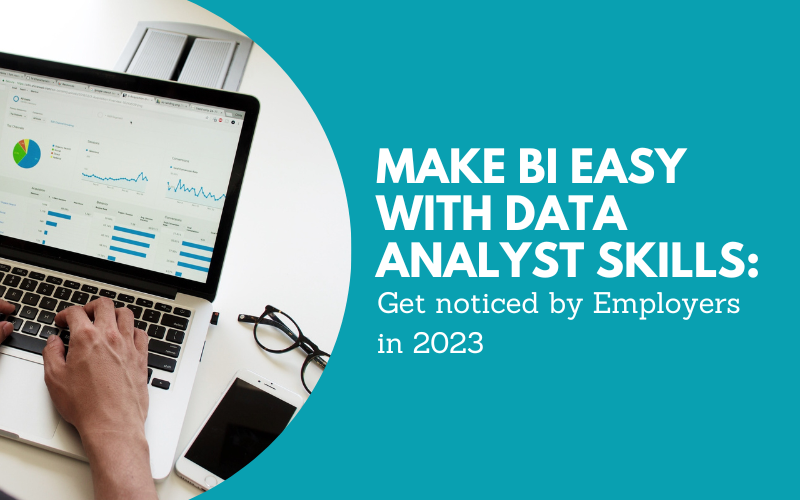Young professionals who are just beginning their careers in the field of data analytics may find that the world of data analytics is quite daunting. This is the case as a direct result of the rapidity with which things are always shifting. It always seems like everyone has to catch up with the newest item in the marketplace. In order to put these worries into perspective, the abilities that are described below are the fundamental talents that each professionals, regardless of their level of experience, should strive to achieve.
Because of this fast increase, there is a major chance for you to improve your abilities in data analytics. For instance, you may enroll in a data analytics boot camp that is focused at people who are interested in entering the industry. The examination of your data may also benefit significantly from the addition of visualizations. Sometimes, there are elements that you may notice visually in the data that might conceal when you look solely at the numbers. By designing dashboards and reports with the aid of Tableau BI development services, you’ll allow people access to vital data by eliminating technological restrictions.
The phrase “digital transformation” has become ubiquitous in today’s corporate world, and as a result, skilled data analysts are in more demand than they have ever been. Nearly every sector is hiring, including but not limited to telecommunications, manufacturing, retail, banking, healthcare, and even fitness. If you’re looking for a job, look no further
All of these duties, as you may have already figured, need data analysts to have a well-developed toolkit of technical abilities. It might be challenging to find qualified data analysts to hire, particularly if the hiring process is unfamiliar to you. Having said that, there is a significant amount to be educated on. Here are a few things you should concentrate on.
1. Data Visualization
The capacity to display data conclusions via the use of graphics or other types of drawings is what is meant by the word “data visualization,” which is self-explanatory. The goal of this is rather straightforward: Even for people who lack formal training in data analysis, it makes it easier to have a better grasp of ideas that are generated by data. Data visualization allows data analysts to assist decision-makers in an organization (who may lack extensive analytical knowledge) in seeing trends and comprehending complicated concepts at a glance. This feature helps you — the data analyst — to obtain a deeper knowledge of a firm’s position, transmit important insights to team leaders, and even impact corporate decision-making for the better.
2. Data Cleaning
Those who are fans of Marie Kondo will be the first to tell you that cleaning is an essential component of being successful. Data cleaning is not an exception to this rule. It’s one of the most crucial processes in creating a viable machine learning model and frequently takes a large piece of any data analyst’s day.
3. Tableau Visualisation
Everyone enjoys hearing a good tale. This is the fundamental premise behind this step of the delivery process for any data analytics. When all of the relevant data points have been collected, you will be able to generate dashboards by importing the data into tools such as Tableau BI development. Dashboards are nothing but a collection of graphs, which are intended at conveying a specific point that has arisen from the analytics conducted on the raw data files.
4. Problem-Solving
The processes of collecting, analyzing, and reporting data are the primary objectives of the area of data analytics. Analytics is being used to the resolution of some of the most pressing issues facing the world today. Every day in your role as a data analyst, you are going to face challenges in the form of difficulties, bugs, and obstacles. Being able to problem-solve your way out of them is another crucial talent that will be beneficial as a data analyst.
5. Having Numerical skills
It’s not uncommon for people to enter the field of data analysis with a background in business or marketing rather than in the realm of numbers. You will need to contribute a degree of competence in numerical matters to the work, which may be obtained via formal education or from experience in other areas. The majority of the mathematical abilities required for data analytics, such as regression analysis, descriptive and inferential statistics, and so on, are teachable.




